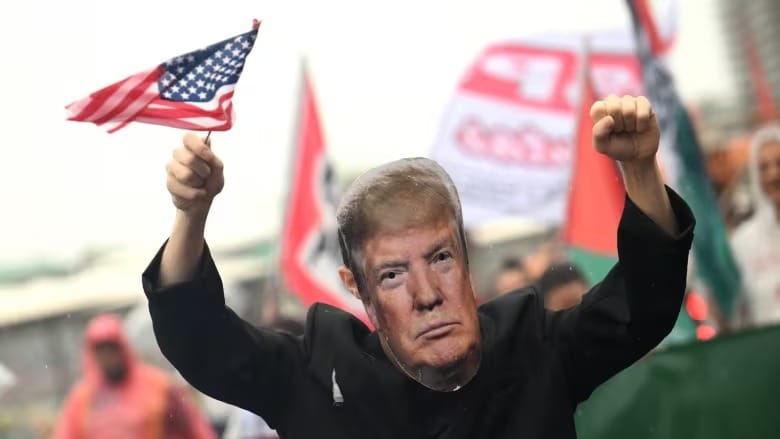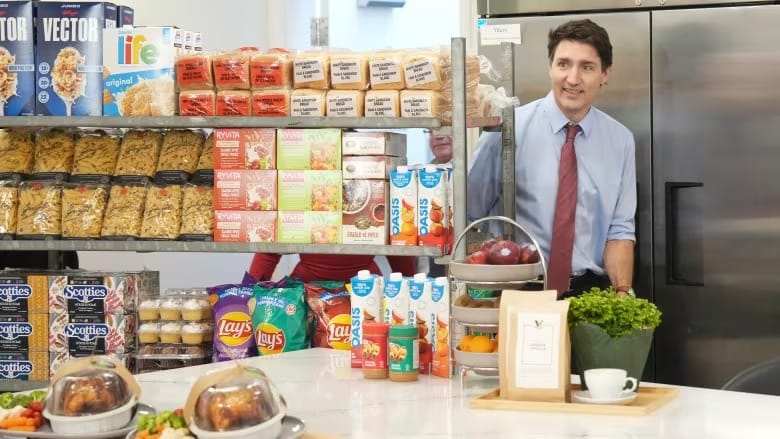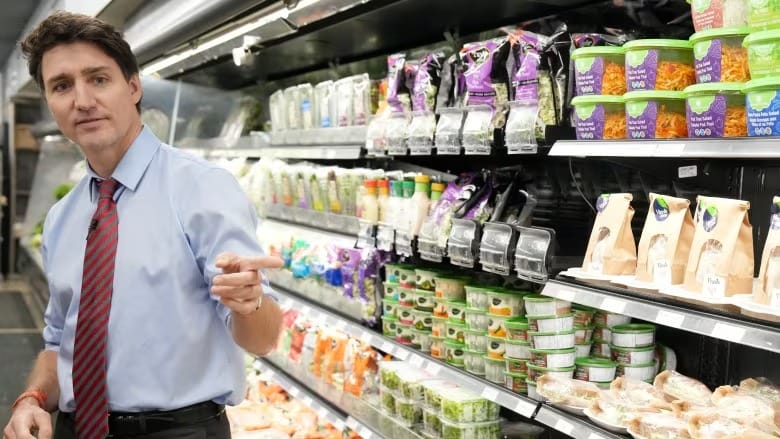Trump isn't yet U.S. president, but his plans for the war in Ukraine loom large over G20
Allies cannot replace a 'complete withdrawal' of U.S. support, Trudeau says

The G20 summit in Rio de Janeiro, set to begin on Monday, is already being shaped by ongoing geopolitical developments, despite Brazil's official theme of combating hunger, poverty, and inequality.
Prime Minister Justin Trudeau is in Brazil after attending the Asia Pacific Economic Cooperation (APEC) summit in Lima, Peru. There, he acknowledged that much of the dialogue with other nations focused on preparing for a potential Donald Trump presidency and what can be achieved before he takes office.
"I think there probably are elements of ... accelerating certain things in the coming months for some," Trudeau remarked during his closing news conference at APEC.
The G20 summit is expected to mirror these concerns, particularly following reports that U.S. President Joe Biden has decided to lift restrictions on Ukraine, enabling it to use U.S.-provided weapons to strike deeper into Russian territory. Multiple sources indicate that Ukraine plans to take advantage of this policy change and launch its first long-range strikes soon.
"While defense security issues might not be the focal point of the agenda ... they will inevitably be linked in some way," said retired Canadian Lieutenant-General Guy Thibault, now chair of the Conference of Defence Associations Institute and former vice-chief of the defense staff. He noted the growing global insecurity, including the conflicts in Ukraine, the Middle East, and the Indo-Pacific, all of which will likely be discussed at the summit.
There is uncertainty regarding what will happen to these discussions once Trump takes office in January, given his relatively tepid support for Ukraine since Russia's invasion in February 2022.
"Let's be very blunt. No allies in the world would be able to replace a complete withdrawal of U.S. support for Ukraine," Trudeau stated.
This uncertainty also casts doubt on any agreements reached during the G20 summit. Decisions made over the next two days may be subject to significant change come January 20, when Trump is sworn in.
Even without Trump at the table, finding consensus among the G20 members—who represent the world's largest economies and include a mix of allies, rivals, and adversaries—will be challenging.
Canada’s relationship with China remains strained and is unlikely to improve with Trump’s return to power. "The trade wars with China will be back," said Vina Nadjibulla, vice-president of research and strategy at the Asia Pacific Foundation of Canada. "There will be more tension over issues like Taiwan, and Canada could find itself caught in the middle."
Canada’s relations with India are similarly tense, and the government's stance toward Russia is cold. "The level of trust I have for Vladimir Putin is probably at an all-time low right now," Trudeau said. Putin will again skip the G20 this year, and Foreign Minister Sergey Lavrov will represent Russia in his place, sparing the host country from the awkward situation of enforcing an international arrest warrant against Putin.
Trudeau has scheduled one-on-one meetings with several leaders, including Mexican President Claudia Sheinbaum. The renegotiation of the free-trade agreement between Canada, the U.S., and Mexico will likely be a key topic, particularly following Trudeau’s suggestion that Mexico could be excluded from talks if it does not align its tariffs on China with those of Canada and the U.S.
On Monday, Trudeau will also meet with U.S. President Biden, a discussion that could mirror the farewell-like meeting Trudeau had with former President Barack Obama at the 2016 G20 summit, prior to Trump’s first term.





